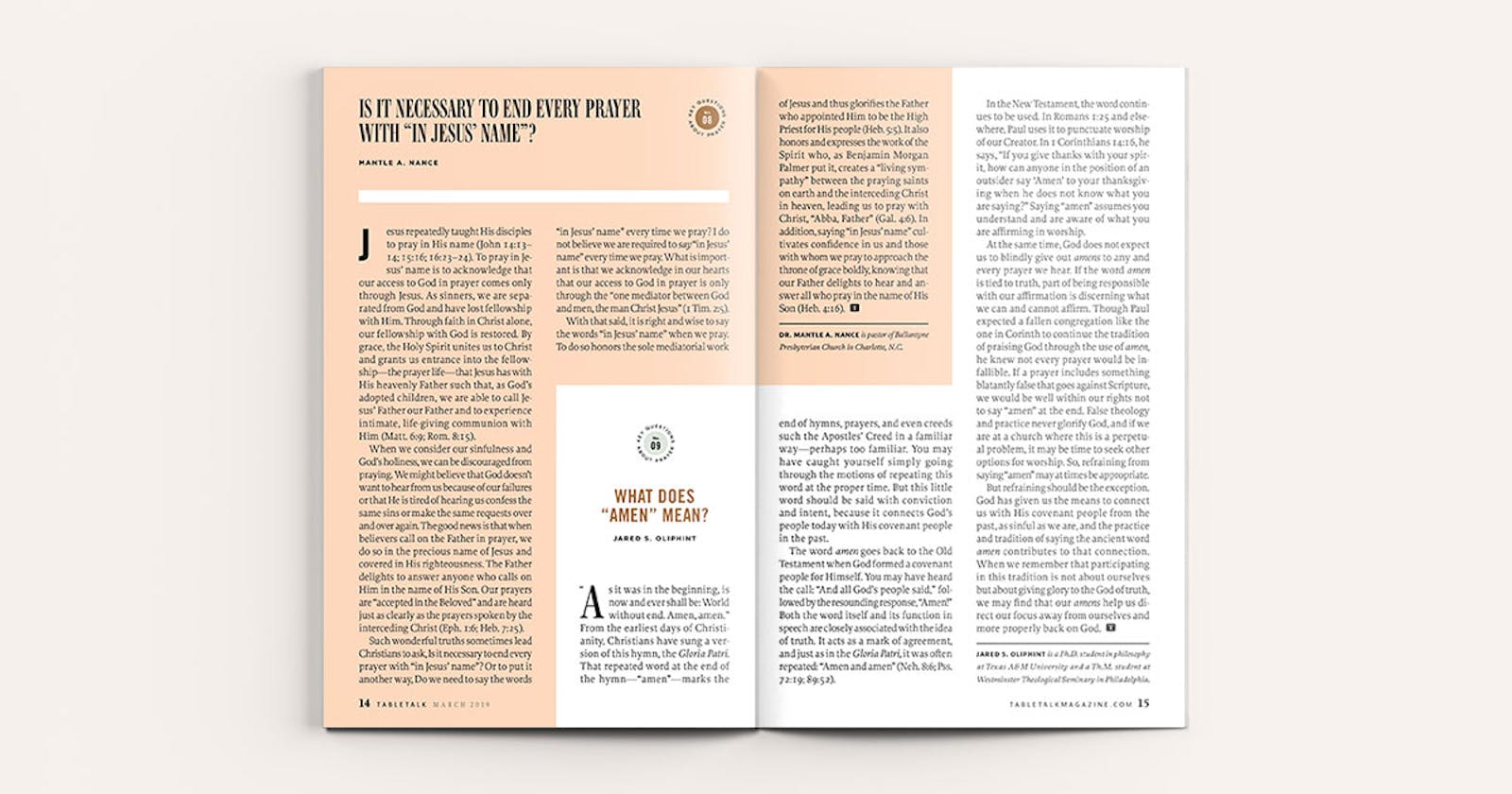
Request your free, three-month trial to Tabletalk magazine. You’ll receive the print issue monthly and gain immediate digital access to decades of archives. This trial is risk-free. No credit card required.
Try Tabletalk NowAlready receive Tabletalk magazine every month?
Verify your email address to gain unlimited access.
“As it was in the beginning, is now and ever shall be: World without end. Amen, amen.” From the earliest days of Christianity, Christians have sung a version of this hymn, the Gloria Patri. That repeated word at the end of the hymn—“amen”—marks the end of hymns, prayers, and even creeds such the Apostles’ Creed in a familiar way—perhaps too familiar. You may have caught yourself simply going through the motions of repeating this word at the proper time. But this little word should be said with conviction and intent, because it connects God’s people today with His covenant people in the past.
The word amen goes back to the Old Testament when God formed a covenant people for Himself. You may have heard the call: “And all God’s people said,” followed by the resounding response, “Amen!” Both the word itself and its function in speech are closely associated with the idea of truth. It acts as a mark of agreement, and just as in the Gloria Patri, it was often repeated: “Amen and amen” (Neh. 8:6; Pss. 72:19; 89:52).

In the New Testament, the word continues to be used. In Romans 1:25 and elsewhere, Paul uses it to punctuate worship of our Creator. In 1 Corinthians 14:16, he says, “If you give thanks with your spirit, how can anyone in the position of an outsider say ‘Amen’ to your thanksgiving when he does not know what you are saying?” Saying “amen” assumes you understand and are aware of what you are affirming in worship.
At the same time, God does not expect us to blindly give out amens to any and every prayer we hear. If the word amen is tied to truth, part of being responsible with our affirmation is discerning what we can and cannot affirm. Though Paul expected a fallen congregation like the one in Corinth to continue the tradition of praising God through the use of amen, he knew not every prayer would be infallible. If a prayer includes something blatantly false that goes against Scripture, we would be well within our rights not to say “amen” at the end. False theology and practice never glorify God, and if we are at a church where this is a perpetual problem, it may be time to seek other options for worship. So, refraining from saying “amen” may at times be appropriate.
But refraining should be the exception. God has given us the means to connect us with His covenant people from the past, as sinful as we are, and the practice and tradition of saying the ancient word amen contributes to that connection. When we remember that participating in this tradition is not about ourselves but about giving glory to the God of truth, we may find that our amens help us direct our focus away from ourselves and more properly back on God.
